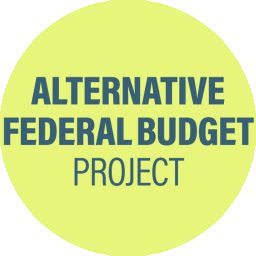Introduction
Canada’s labour market recovery has been marked by a surge in employment and job vacancies. In a tight labour market, governments have been focused on sectors where acute staff shortages are causing pressure, such as in Canada’s health care and long-term care systems. But short-term measures are a symptom of the lack of a coordinated federal, provincial, and territorial skills training strategy to deal with immediate labour market pressures—as well as to ensure Canada’s future workforce has access to the best skill-building programs in a world that is competing for the best and brightest.
Too many Canadians are getting left behind. They don’t have access to training opportunities that could position them for better jobs. And the rise of precarious work requires its own labour market strategy to ensure all workers can access decent work. It’s good for people, it’s good for the economy and it’s a critical component to achieving gender, racial, Indigenous and health equity.
Overview
Skills training and access to a full range of lifelong educational opportunities are key to achieving a national decent work agenda. This includes support for precarious workers, women, workers with no postsecondary education, those who completed their high school years ago and require new skills to move into new jobs, and mid-career workers needing support to transition into new positions.
The AFB’s goal is to set the terms for Canada to become a leader in training workers for jobs of all kinds, to facilitate their transition into better jobs, and to ensure fair and healthy working conditions.1,2
Women, gender-diverse people, Indigenous Peoples, immigrants, migrant workers, disabled people, and racialized people face multiple barriers in Canada’s labour market. Even as Canada’s labour market is recovering from pandemic shutdowns, that recovery isn’t evenly shared. Workers in Canada need measures to deal with pressures like the imperative to implement a just transition in response to the climate crisis, the crisis in the care economy, and precarious work. Canada needs more effective ladders to attain new skills and move into the jobs of the future.
The federal government has made some moves in the right direction. The government’s new investment in a Sectoral Workforce Solutions Program provides much needed support for training in some industries, such as health care and the trucking industry. As for the sectoral training program, there remains a glaring oversight: it excludes temporary foreign workers. Not only should temporary foreign workers be included in this training program, they should be extended permanent status rights to ensure greater stability for individuals as well as the industries in which they work.
Canada must also update its federal labour code. The federal government has proceeded at a glacial speed with its promised labour code modernization for federally regulated industries. It promised new provisions that would improve working conditions for those in precarious jobs in the federally regulated sector in previous budgets—but it has not delivered any action.
At the same time, the government has twice delayed bringing into force new regulations that would implement legislative changes already committed to the Canada Labour Code. Of particular concern: the equal treatment provisions that would, among other things, prohibit differences in rates of pay based on a worker’s employment status (such as temporary or part-time workers) and the hours of work provisions that address breaks and notice of shift changes. These latter provisions were to be extended to additional sectors as part of a second phase of implementation—but workers are still waiting.
The code should provide full successor rights in contract-flipping situations. This practice is common, for example, at airports—often impacting recent immigrants and racialized workers. In the absence of strong prohibitions against contract flipping, companies have a licence to constantly undermine workers’ gains in working conditions and union representation. Companies deny these workers many of the rights of employed workers.
The pandemic proved that Canada urgently needs to reform its Employment Insurance (EI) system. Early in the pandemic, the federal government was forced to create the Canada Emergency Response Benefit (CERB) to replace EI, but that program has since ended. There are many lessons from the CERB that should be taken into account. Research shows that the CERB was more than just an income support—it gave many Canadians the breathing room they needed during the start of the pandemic to pursue new skills.3 Most who pursued additional training while on CERB benefitted in multiple ways, including landing better paying jobs.
As for EI, spending on the Labour Market Agreements (LMAs) has averaged $2.5 billion annually, which is intended for training and employment services. The funds come from the EI premiums paid by employers and workers. In its 2023 budget, the federal government added an additional one-time $625 million in the 2023-24 year. This additional investment should remain a permanent, not a temporary, feature.
LMAs are focused on supporting the delivery of training and employment services. They do not require income support while the worker is engaged in training or skills development. Some provinces include training allowances but not all, and they’re minimal and typically income-tested. The federal government must pay more attention to income support for workers in need, otherwise more advantaged workers will be the only ones who can afford to access LMA training. It’s also imperative to remove the current bar on receipt of EI benefits when people quit or take a leave to go back to school—there’s no reason to leave those workers behind.
Provincial/territorial governments and employers themselves also need to step up and play a bigger role in worker training, and in strengthening provincial employment standards to ensure decent work for all workers.
Actions
The AFB will implement the following actions:
The AFB will follow through on promised Canada Labour Code amendments and immediately bring into force amendments to Part III to establish equal treatment and compensation for employees, including those in precarious work. It will also invest in needed enforcement to contend with the rampant misclassification of workers as self-employed and exploitation of vulnerable workers in their workplace (see Poverty and Income Security chapter), following the changes in the law made in Budget 2023.
The AFB will raise the federal minimum wage to something closer to a living wage ($21/hour).
The AFB will ensure EI training benefits are expanded to more participants—particularly women and gender-diverse people, Indigenous Peoples, immigrants, migrant workers, disabled people, and racialized people. It will also ensure that provinces and territories are held to account by expanding sectoral tables and raising standards with regard to reporting on labour market inequities with regard to training and education.
The AFB will enhance the Employment Insurance Training Support Benefit by raising the income replacement rate from 55 per cent to 66.6 per cent, with a minimum floor of $450 a week, eliminating the one week waiting period and extending the maximum duration of benefits from four to 16 weeks.
The AFB will make permanent the 2023 additional, one-time $625 million (over two years) investment in for training and employment services through LMAs.
The AFB will ensure future expansion of training programs remain in public hands, stemming the privatization of this important means to decent work.
The AFB will expand the types of training to include secondary school completion and upgrading, essential literacy and numeracy training, and English or French as a second language instruction. To facilitate the expansion of types of training covered, the list of approved educational institutions will be expanded to include training programs provided by community organizations and unions.
The AFB will allocate an additional $500 million a year, adjusted annually to inflation, to expand access to apprenticeships and other forms of skills training. (see Post-Secondary Education chapter).
The AFB will provide an in-depth, comprehensive, Canada-wide workforce strategy to address the current recruitment and retention crisis (see Seniors’ Care chapter).
The AFB will create a Just Transition Benefit to support workers undergoing transition. (see Fair and Equitable Transition chapter). The AFB will fund a unified Inclusive Workforce Development Program to promote opportunities for underrepresented groups in the clean economy. (see Fair and Equitable Transition chapter).
The AFB will implement a comprehensive review of the Federal Public Service Labour Relations Act (FPSLRA) (see Public Service chapter). The AFB will increase investments to end the health care human resources crisis (see Health Care chapter).
The AFB will fund the development and implementation of an in depth, comprehensive, Canada-wide workforce strategy to address the current recruitment and retention crisis [in childcare], so that qualified educators are available and willing to staff existing and new facilities (see Childcare chapter).
The AFB will amend the Canada Labour Code definition of harassment and violence in Part II of the Canada Labour Code to include racism as a form of workplace violence and harassment (see Racial Equality chapter).
The AFB will strengthen the Federal Employment Equity Act and attach employment equity measures through Community Benefits Agreement to all federal investment and recovery programs to ensure racialized groups and other under-represented groups have equitable access to any new jobs created. Eliminate the use of ‘visible minorities’ in the Act (see Racial Equality chapter).
The AFB will strengthen labour and accountability rules for climate tax credits (see Taxation chapter).







